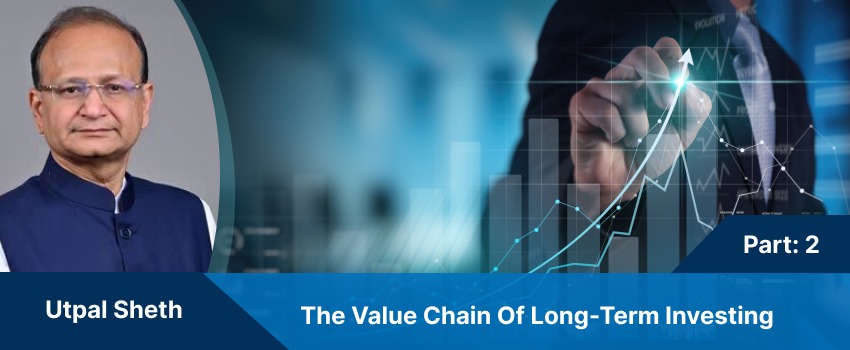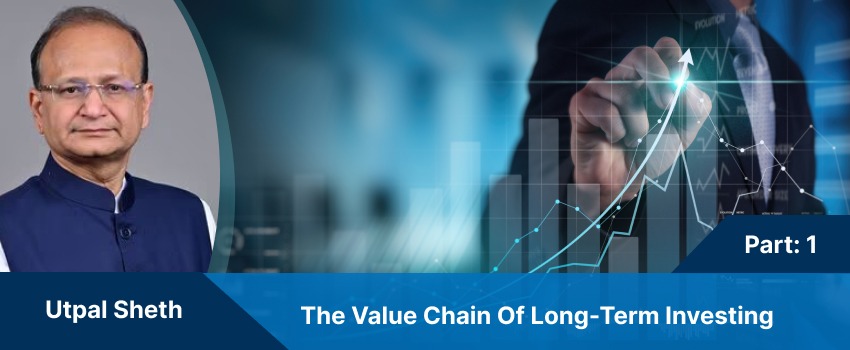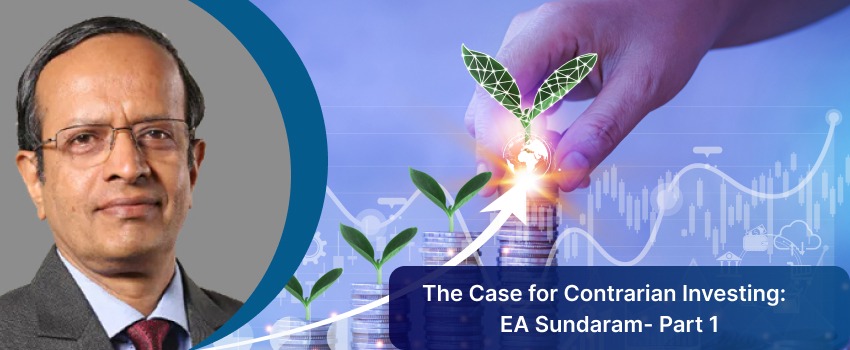Just another Sunday evening and I was sipping hot coffee at a nearby café with my gang of friends. After the usual jokes and gossip, the conversation turned to stock investing and the gains I had made.
Being the only “finance specialist” amongst my group of software engineer and marketing friends, I had gotten used to these conversations and the myth that I had made tons of money investing in stocks!
But this time I could see that some of them were genuinely curious about the stock markets and wanted to start investing. But most of them just didn’t know how to go about it. What followed was a series of questions: “So, do you invest online?”, “Do you also have one of those demat accounts that these days I hear many people seem to have. What exactly is it?”, “What is the minimum requirement for it? Can I also open one?”, “But, how do I know which is the right stock?” (…..and so on…………)
The excitement seen in the stock market these days, seemed to have bitten my friends as well. Getting a bit exasperated I said, “Will you guys ask one question at a time? I am not running away somewhere!”
Everyone sniggered. Rachita started off, “So Surbhi, what exactly is a demat account?” She seemed quite clueless about the concept.
“Well, Rachita, very simply put a demat account is like a bank savings account. Just as you keep your money in a savings account, you keep the shares that you own in a demat account. When you buy or sell shares they are reflected electronically in your demat account just as a cash transaction would reflect in your bank account. ”
“So, how do you get this demat account?” asked Rachita again.
“Rachita, there are two central Depositories in India – the National Securities Depositories Limited (NSDL) and the Central Depository Services Limited (CDSL). These depositories are like central warehouses and clearing houses where the stocks of all publicly listed companies are stored. To get a demat account, you need to approach an agent of these central depositories, called a depository participant. The depository participant could be either a bank or a broking firm.
“Wait, I am a bit confused. Could you tell me more about these depository participants?” interrupted Ankur.
“Ankur, think of DPs as the intermediaries between the depository and the investors. So, if you want to open a demat account, you have to approach a DP which will open it for you. So, you may have opened your account through any one of the authorized DPs, but your account eventually is with either of NSDL or CDSL. The depository participant will also provide you with periodic statements of holdings and transactions, similar to your bank passbook or statement. Got it?”
“Yup”.
“So, what are the steps to open a demat account?” enquired Prashant
This question seemed to have a precursor in the question “what is the minimum requirement to open a demat account?”
“Firstly, you must be at least 18 years of age which is questionable considering the jokes you crack! Next, you need to choose a depository participant based on your convenience and the DPs charges. You have many options here like HDFC Bank, ICICI Bank, Motilal Oswal etc. Typically, a DP will charge anything between 0 to Rs. 750 as account opening charges depending on the kind of account. There might also be an annual account maintenance fee ranging from Rs. 400 to Rs. 800 from the second year onwards. The next step is to submit few documents which include correctly filled account opening form, pan card photocopy, proof of identity & residence proof. After you do this, you will be required to sign an agreement on a stamp paper (including rights & obligations of both parties). Then, a unique Beneficial Owner Identification Number (BO ID) will be allotted to you by the DP. And then, voila, a demat account is created and a unique demat account number is allotted to you by NSDL/CDSL.
Megha, who had previously seen her dad deal in physical share certificates, was the next in line to ask her question, “If I am not wrong, demat has replaced physical share certificates of the past. So, what are the benefits of holding shares in a demat account?“
I responded with a smile:
“Megha, first let me tell you about the risks that this demat system reduces, over the earlier paper-based system that your dad used.
• There is no confusion in ownership title of securities.
• It eliminates the risk of forgery & counterfeiting
• There is no fear of loss due to fire, theft or mutilation
• There is no risk of signature mismatch, postal delays and loss of certificates in transit, and,
• There is no odd-lots problem. Even 1 share can be bought or sold.”
 “It also has other benefits like safe, secure and quick transacting, no stamp duty or transfer deed in case of transfer of securities, lower transaction cost, and many more…..”
“It also has other benefits like safe, secure and quick transacting, no stamp duty or transfer deed in case of transfer of securities, lower transaction cost, and many more…..”
Amit, quite convinced about demat by now, asked, “So, once I have opened it, how do I go ahead and buy/sell stocks?”
“Amit”, I said, “Usually you open an online trading account along with a demat account, that enables you to buy and sell securities, to and from your demat account. Consider it like a debit or credit card, which is necessary to transact on your online banking account.”
“When you buy shares, your DP will credit your demat account with the shares and these will be reflected in your statement of holdings. If you are trading through an internet based platform, you can view your holdings online. Typically the DP credits the shares on T+2 basis, that is trading day + 2 days after that.”
Amit immediately asked another questions, “Oh! Tell me more about this online trading account? How does it work?
By now, Nikita, my dear friend had had enough ‘gyaan’ on investing for the day.
She blurted, “Please Amit, now you better save your questions for the next time we catch hold of Surbhi. For now, I really need to grab a bite, and rush home. My dad has been calling me up for long now.”
Amit frowned.
Nikita’s request ended our session on demat accounts. But I knew that another session about online trading accounts was in the offering when we met next time.
So, we’ll see you next week with our article on online trading accounts.
If you liked what you read and would like to put it in to practice Register at MoneyWorks4me.com. You will get amazing FREE features that will enable you to invest in Stocks and Mutual Funds the right way.
Need help on Investing? And more….Puchho Befikar
Kyunki yeh paise ka mamala hai
Start Chat | Request a Callback | Call 020 6725 8333 | WhatsApp 8055769463










Nice illustration!!!!!!!!!!
@726b3acd6026b17a807e0caeb5d668ab:disqus Thanks for your appreciation. Do keep reading and posting your feedback!
If you want to know more about it you can contact on this number 9582480762.Now you can make more & more profit without any risk, i will suggest you a low brokerage for trading.
Is there a Demat account with T+0 Settlement? How do high frequency traders manage T+2 Trades?
@ Rahul Nowhere in the world, trade is settled in T+0 days. Even, in the high frequency trading (algorithmic trading), when cash settlement is required and delivery happens, it requires T +2 days. SEBI is in the process of considering the shortening of trade settlement cycle through shifting to T+1.
@ Rahul T+0 settlement is not available anywhere in the world. (SEBI
is currently considering moving to T+1 settlement cycle, which would
put us ahead of even most developed countries). Even in algorithmic
trading, when a trader has net closing position in a particular
script, settlement does not happen in T+0 days.Although most most
algo trading is high frequency trading, where in cash settlement
takes place.
Thanks for the reply.
With T+2 or T+3, waiting for a 2-3 days until cash settlement which could sometimes mean a good share could become out of reach during these days. Holds true for those on low cash reserves.
However, the fundamentals embody an enormous negative impact
on man. Seller’s credit score, his embarrassment once facing friends and
neighbors, and therefore the acute stress that the complete technique can
placed on his family. Short sales and foreclosures square measure really
unpredictable, and may altogether chance take as long as twelve months.